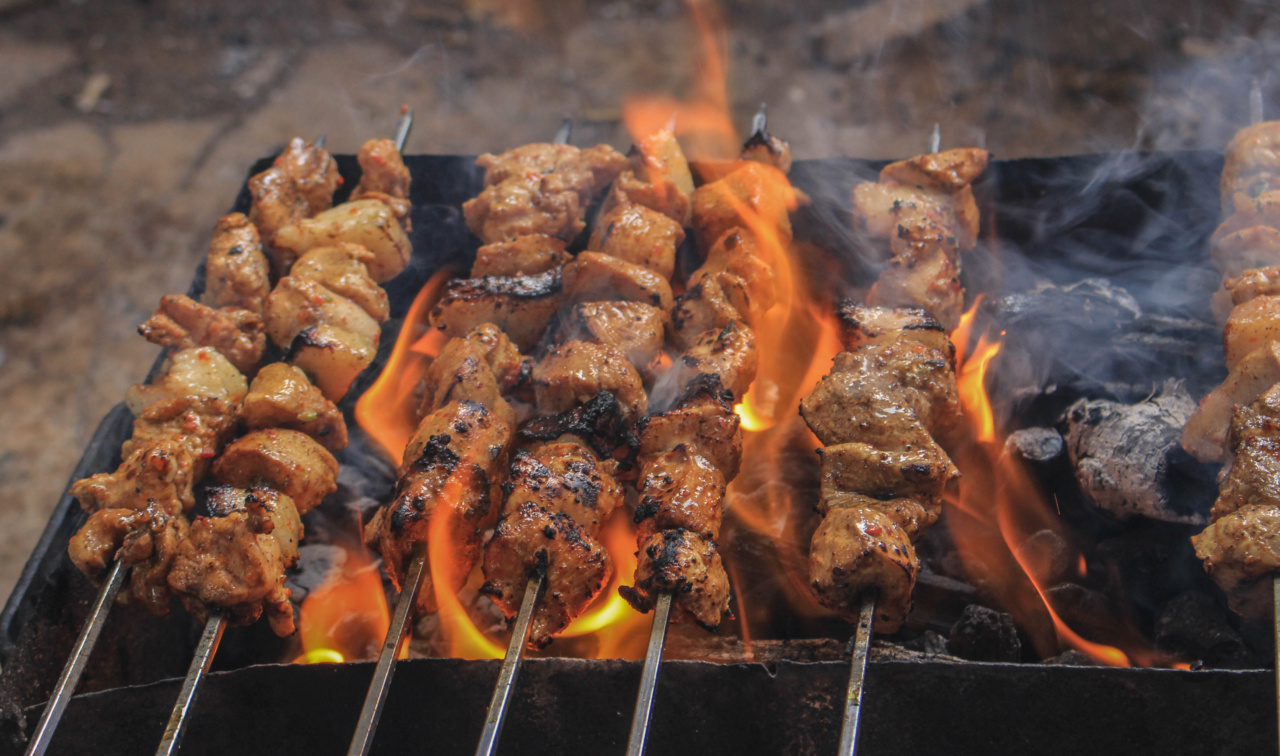If you love the taste of grilled food, then charcoal grilling may be your go-to method. However, recent research suggests that this cooking technique poses some serious health risks that you should consider before firing up your grill.
Higher Risk of Cancer
When charcoal is burned, it produces polycyclic aromatic hydrocarbons (PAHs) and heterocyclic amines (HCAs), both of which are known carcinogens.
PAHs form when fat and juices drip onto the hot charcoal and cause flames to flare up, while HCAs are created when meat is cooked at high temperatures.
The longer the food is cooked over the charcoal, the more PAHs and HCAs are produced. This is why well-done and charred meat is particularly high in these cancer-causing compounds.
Increased Risk of Respiratory Problems
In addition to the cancer risks, charcoal grilling can also cause respiratory problems. This is because the smoke and fumes produced by the grill contain harmful chemicals such as carbon monoxide, nitrogen dioxide, and particulate matter.
These pollutants can irritate your lungs and cause coughing, wheezing, and shortness of breath. Studies have also linked exposure to these substances with an increased risk of lung cancer, chronic bronchitis, and other respiratory conditions.
Higher Risk of Heart Disease
Charcoal grilling can also increase your risk of heart disease.
This is because the smoke and fumes produced by the grill can trigger inflammation in your blood vessels, leading to arteriosclerosis (hardening of the arteries) and increasing your risk of heart attacks and strokes.
Additionally, well-done and charred meat can be high in advanced glycation end products (AGEs), which are harmful compounds that form when proteins are cooked at high temperatures.
These AGEs have been linked to a higher risk of heart disease, diabetes, and other chronic conditions.
Risk of Food Poisoning
Another risk of charcoal grilling is food poisoning. This can occur if the meat is not cooked to a safe temperature, or if it is not handled and stored properly before cooking.
To minimize the risk of food poisoning, always use a meat thermometer to ensure that the food is cooked to the appropriate temperature.
You should also keep the meat refrigerated until you are ready to cook it, and avoid cross-contamination by using separate cutting boards and utensils for raw and cooked meat.
Ways to Reduce the Risks of Charcoal Grilling
While charcoal grilling does pose some risks to your health, there are steps you can take to minimize these risks:.
- Use lean cuts of meat, which produce fewer PAHs and HCAs than fatty cuts.
- Trim the fat off the meat before grilling to reduce dripping and flare-ups.
- Marinate the meat before grilling, as this can help reduce the formation of HCAs.
- Cook the meat to the appropriate temperature using a meat thermometer.
- Avoid charring and overcooking the meat.
- Use a chimney starter to light the coals, as this reduces the amount of lighter fluid needed and minimizes the risk of chemical contamination.
- Clean your grill regularly to reduce the buildup of carcinogenic compounds.
- Use a fan or ventilation system to reduce your exposure to smoke and fumes.
Conclusion
Charcoal grilling can be a delicious and enjoyable way to cook your food, but it does come with some health risks. To minimize these risks, follow the tips above and always make sure that your meat is cooked to a safe temperature.
Remember, it’s not just about the taste – it’s also about protecting your health.

























